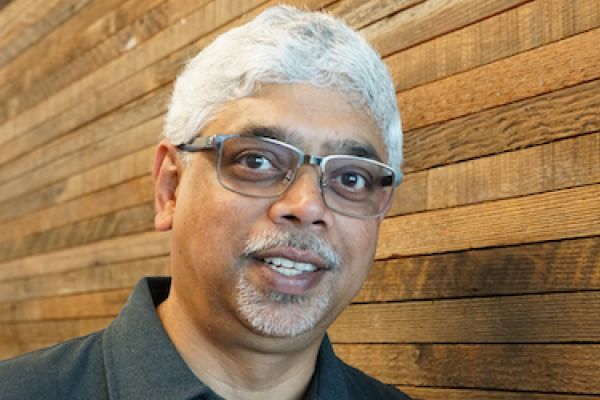Faces on Campus – Raman Chandrasekar

Raman “Chandra” Chandrasekar is a Part-Time Lecturer in the College of Computer and Information Science, at Northeastern University’s Seattle campus. Chandra has a background in research and engineering management, with a focus on addressing real-world problems in natural language processing, information retrieval, and machine learning. He has experience incubating and deploying applications in areas such as web-scale search, text mining, topical news dissemination, and context extraction.
Chandra received his PhD in machine translation from the Tata Institute of Fundamental Research, in Mumbai, India. He worked there and at the National Centre for Software Technology, also in Mumbai, focusing on various aspects of artificial intelligence. Later, he worked at the Institute for Research in Cognitive Science, at the University of Pennsylvania, on automatic sentence simplification, and using natural language processing to improve search. From 1998 to 2010, he was a researcher at Microsoft and Microsoft Research in Redmond, working on search, text mining, news dissemination, human computation, and related areas. He moved to the news-dissemination startup Evri.com, and later, managed the development of web-scale academic search products at ProQuest in Seattle. Now a freelance consultant, Chandra works with clients on problems including text classification, learning from mobile sensor data, and question-answering. More information about his papers and patents are available at Google Scholar, USPTO, and Semantic Scholar.
What influenced your decision to join the faculty at Northeastern University–Seattle?
I have been active for several years in research, prototyping, and engineering management, focusing at the intersection of search, natural-language processing, and machine learning. I’ve worked in both India and in the U.S. I’ve spent some time in China as well. I used to teach a lot, but had not been actively teaching for some years. I wanted to get back into teaching, somewhere that would appreciate all I had to bring to the classroom. I knew about the stellar reputation of Northeastern University, and so was pleased when openings appeared at NU-Seattle in my areas of interest and expertise. Dr. Ian Gorton, the Director of Computer Science programs, gave an immediate and warm response to my inquiry, suggesting courses I could teach, and proactively answering many of the questions I had on my mind. I had a meeting with him, and later sat in on some classes here. Uniformly, I found everyone very friendly, collegial, and eager to help. I met a few of the students too, and was impressed with their caliber. Long story short, I knew I would feel very much at home here, and I could feel the vim and vigor around teaching and learning. That’s what prompted me to join, and I have to say that this feeling has only been reinforced after joining, and meeting others—the NU attitude just shines thorough!
What do you like most about the Seattle campus?
I like the fact that the campus is growing but still at the size where faculty members know students by name, and know about their background and skills.
I also like the fact that there is active movement towards trying different models of teaching, without the pressure to stick to any one model. I like the practical approach and emphasis in courses that do not lose track of foundational elements. I am happy about the plan to increase the faculty and engage others in relevant fields, with regular meetings to promote interaction. I love seeing fresh flowers all over campus. And yes, I like the coffee machines here—mmm-mocha! ☺
What are your objectives at Northeastern University–Seattle?
Right now, I’m focused on grading the Information Retrieval course that has just ended, and planning next semester’s Artificial Intelligence course, thinking about all the fun we can have exploring the mind, cognition, and computation. Longer-term, I’m interested in proposing short-term courses for employees at local companies and start-ups. I’d also love to propose independent-study or seminar-type courses where individual or small groups of students can delve into specific topics in depth–that would be challenging, and would allow students to reach beyond and achieve to their full potential.
Do you have any advice for our new students?
Absolutely. I’d tell them to take full advantage of the wonderful learning environment here and the very approachable faculty. And to go forth and bloom!




